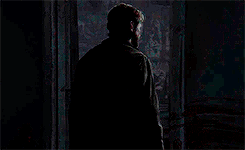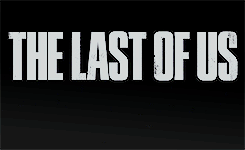Latest Posts by hankofthechill - Page 3








The Last of Us: Part 2 Reveal Trailer - PSX 2016
Working in a doctor's office and this shit comes on

Save yourself; don’t ever look back.
Pierce The Veil // Circles (via onlybandlyrics)



Pierce The Veil - Circles
I'm tired of being a disposable friend to everyone. If you can't be there for me like I was there for you, or if you think you can just come and go wherever it's convenient for you, then don't be surprised when I stop wasting my time trying to support this one-sided relationship

BRAND Steakhouse at Monte Carlo Resort and Casino turns the classic Old Fashioned on its head with premium Japanese whisky and smoked maple syrup. (21+)




the sky under the sea // pierce the veil
I’ll destroy myself if it means I can fix you.
- // Midnight (via solace-at-midnight)

50 Songs by the Dear Hunter
5. The Lake and the River
“His branches reached so far before his leaves were bold extremities with great control, wasted along; he died alone.”









The Dear Hunter with quartet Providence, RI at The Met September 4, 2013
photo credit: Natalie Bisignano

What are von Neumann machines?

Decades ago, scholars found that it’s theoretically possible to not just spread human civilization across the galaxy, but to do so quite quickly, without breaking any known laws of physics. Their idea is based on the work of a mathematician named John von Neumann, who designed on paper machines that could self-replicate and create new generations of themselves. These would later come to be known as von Neumann machines.

In the context of space exploration, von Neumann machines could be built on Earth and launched into space. There, the self-sufficient machines would land on distant planets. They would then mine the available resources and harvest energy, build replicas of themselves, launch those to the nearest planets, and continue the cycle. The result is the creation of millions of probes spreading outwards into the universe like a drop of ink in a fishbowl.

Scholars crunched the numbers and found that a single von Neumann machine traveling at 5% of the speed of light should be able to replicate throughout our galaxy in 4 million years or less. That may sound like a long time, but when you consider that our universe is 14 billion years old, on a cosmic scale, it’s incredibly fast - the equivalent of about 2.5 hours in an entire year.

Creating von Neumann machines would require a few technologies we don’t have yet, including advanced artificial intelligence, miniaturization, and better propulsion systems. If we wanted to use them to spread actual humans throughout the galaxy, we would need yet another technological leap - the ability to artificially grow biological organisms and bodies using raw elements and genetic information.

Regardless, if in the last billion years an alien civilization created such a machine and set it multiplying its way toward us, our galaxy would be swarming with them by now. So then where are all these machines? Some astronomers, like Carl Sagan, say that intelligent aliens wouldn’t build self-replicating machines at all. They might hurtle out of control, scavenging planets to their cores in order to keep replicating. Others take the machines absence as proof that intelligent alien civilizations don’t exist, or that they go extinct before they can develop the necessary technologies.

But all this hasn’t stopped people from imagining what it would be like if they were out there. Science fiction author David Brin writes about a universe in which many different von Neumann machines exist and proliferate simultaneously. Some are designed to greet young civilizations, others to locate and destroy them before they become a threat. For now, all we have is curiosity and theory. But the next time you look at the night sky, consider that billions of self-replicating machines could be advancing between stars in our galaxy right now. If they exist, one of them will eventually land on Earth, or maybe, just maybe, they’re already here.
From the TED-Ed Lesson Could human civilization spread across the whole galaxy? - Roey Tzezana
Animation by Eion Duffy






Eagle Furnace

Spring Sunset by Nebojsa Novakovic

*** by Alexey-Argentum on DeviantArt

i wish.






paraty, Brazil by Gabriela Ciolini

Streets of Valparaíso, Chile




South Carolina Sunrise
Instagram Twitter

pierce the veil - phantom power and ludicrous speed

We’re gonna chase the moon like fire //
Together we can fake our own deaths here //
Just wanna be alone and watch as you all just disappear //






Pierce The Veil/Circles/Misadventures -Requested by @sleepingwithlowveils -


it’s never enough, it’s never enough today i saw the whole world,

Pierce The Veil - Circles


pierce the veil // circles

And The Snakes Start To Sing
Tips to learn a new language
The 75 most common words make up 40% of occurrences The 200 most common words make up 50% of occurrences The 524 most common words make up 60% of occurrences The 1257 most common words make up 70% of occurrences The 2925 most common words make up 80% of occurrences The 7444 most common words make up 90% of occurrences The 13374 most common words make up 95% of occurrences The 25508 most common words make up 99% of occurrences
(Source: 5 Steps to Speak a New Language by Hung Quang Pham)
This article has an excellent summary on how to rapidly learn a new language within 90 days.
We can begin with studying the first 600 words. Of course chucking is an effective way to memorize words readily. Here’s a list to translate into the language you desire to learn that Derek Roger suggested! :)
EXPRESSIONS OF POLITENESS (about 50 expressions)
‘Yes’ and 'no’: yes, no, absolutely, no way, exactly.
Question words: when? where? how? how much? how many? why? what? who? which? whose?
Apologizing: excuse me, sorry to interrupt, well now, I’m afraid so, I’m afraid not.
Meeting and parting: good morning, good afternoon, good evening, hello, goodbye, cheers, see you later, pleased to meet you, nice to have met.
Interjections: please, thank you, don’t mention it, sorry, it’ll be done, I agree, congratulations, thank heavens, nonsense.
NOUNS (about 120 words)
Time: morning, afternoon, evening, night; Sunday, Monday, Tuesday, Wednesday, Thursday, Friday, Saturday; spring, summer, autumn, winter; time, occasion, minute, half-hour, hour, day, week, month, year.
People: family, relative, mother, father, son, daughter, sister, brother, husband, wife; colleague, friend, boyfriend, girlfriend; people, person, human being, man, woman, lady, gentleman, boy, girl, child.
Objects: address, bag, book, car, clothes, key, letter (=to post), light (=lamp), money, name, newspaper, pen, pencil, picture, suitcase, thing, ticket.
Places: place, world, country, town, street, road, school, shop, house, apartment, room, ground; Britain, name of the foreign country, British town-names, foreign town-names.
Abstract: accident, beginning, change, color, damage, fun, half, help, joke, journey, language, English, name of the foreign language, letter (of alphabet), life, love, mistake, news, page, pain, part, question, reason, sort, surprise, way (=method), weather, work.
Other: hand, foot, head, eye, mouth, voice; the left, the right; the top, the bottom, the side; air, water, sun, bread, food, paper, noise.
PREPOSITIONS (about 40 words)
General: of, to, at, for, from, in, on.
Logical: about, according-to, except, like, against, with, without, by, despite, instead of.
Space: into, out of, outside, towards, away from, behind, in front of, beside, next to, between, above, on top of, below, under, underneath, near to, a long way from, through.
Time: after, ago, before, during, since, until.
DETERMINERS (about 80 words)
Articles and numbers: a, the; nos. 0–20; nos. 30–100; nos. 200–1000; last, next, 1st–12th.
Demonstrative: this, that.
Possessive: my, your, his, her, its, our, their.
Quantifiers: all, some, no, any, many, much, more, less, a few, several, whole, a little, a lot of.
Comparators: both, neither, each, every, other, another, same, different, such.
ADJECTIVES (about 80 words)
Color: black, blue, green, red, white, yellow.
Evaluative: bad, good, terrible; important, urgent, necessary; possible, impossible; right, wrong, true.
General: big, little, small, heavy; high, low; hot, cold, warm; easy, difficult; cheap, expensive; clean, dirty; beautiful, funny (=comical), funny (=odd), usual, common (=shared), nice, pretty, wonderful; boring, interesting, dangerous, safe; short, tall, long; new, old; calm, clear, dry; fast, slow; finished, free, full, light (=not dark), open, quiet, ready, strong.
Personal: afraid, alone, angry, certain, cheerful, dead, famous, glad, happy, ill, kind, married, pleased, sorry, stupid, surprised, tired, well, worried, young.
VERBS (about 100 words)
arrive, ask, be, be able to, become, begin, believe, borrow, bring, buy, can, change, check, collect, come, continue, cry, do, drop, eat, fall, feel, find, finish, forget, give, going to, have, have to, hear, help, hold, hope, hurt (oneself), hurt (someone else), keep, know, laugh, learn, leave, lend, let (=allow), lie down, like, listen, live (=be alive), live (=reside), look (at), look for, lose, love, make, may (=permission), may (=possibility), mean, meet, must, need, obtain, open, ought to, pay, play, put, read, remember, say, see, sell, send, should, show, shut, sing, sleep, speak, stand, stay, stop, suggest, take, talk, teach, think, travel, try, understand, use, used to, wait for, walk, want, watch, will, work (=operate), work (=toil), worry, would, write.
PRONOUNS (about 40 words)
Personal: I, you, he, she, it, we, they, one; myself, yourself, himself, herself, itself, ourselves, yourselves, themselves.
Possessive: mine, yours, his, hers, its, ours, theirs.
Demonstrative: this, that.
Universal: everyone, everybody, everything, each, both, all, one, another.
Indefinite: someone, somebody, something, some, a few, a little, more, less; anyone, anybody, anything, any, either, much, many.
Negative: no-one, nobody, nothing, none, neither.
ADVERBS (about 60 words)
Place: here, there, above, over, below, in front, behind, nearby, a long way away, inside, outside, to the right, to the left, somewhere, anywhere, everywhere, nowhere, home, upstairs, downstairs.
Time: now, soon, immediately, quickly, finally, again, once, for a long time, today, generally, sometimes, always, often, before, after, early, late, never, not yet, still, already, then (=at that time), then (=next), yesterday, tomorrow, tonight.
Quantifiers: a little, about (=approximately), almost, at least, completely, very, enough, exactly, just, not, too much, more, less.
Manner: also, especially, gradually, of course, only, otherwise, perhaps, probably, quite, so, then (=therefore), too (=also), unfortunately, very much, well.
CONJUNCTIONS (about 30 words)
Coordinating: and, but, or; as, than, like.
Time & Place: when, while, before, after, since (=time), until; where.
Manner & Logic: how, why, because, since (=because), although, if; what, who, whom, whose, which, that.
